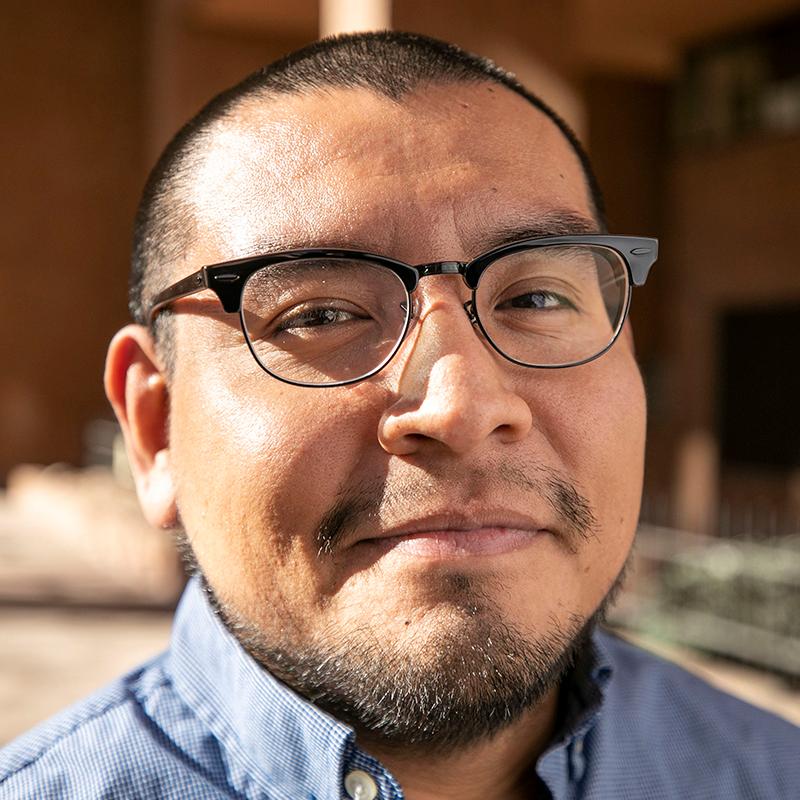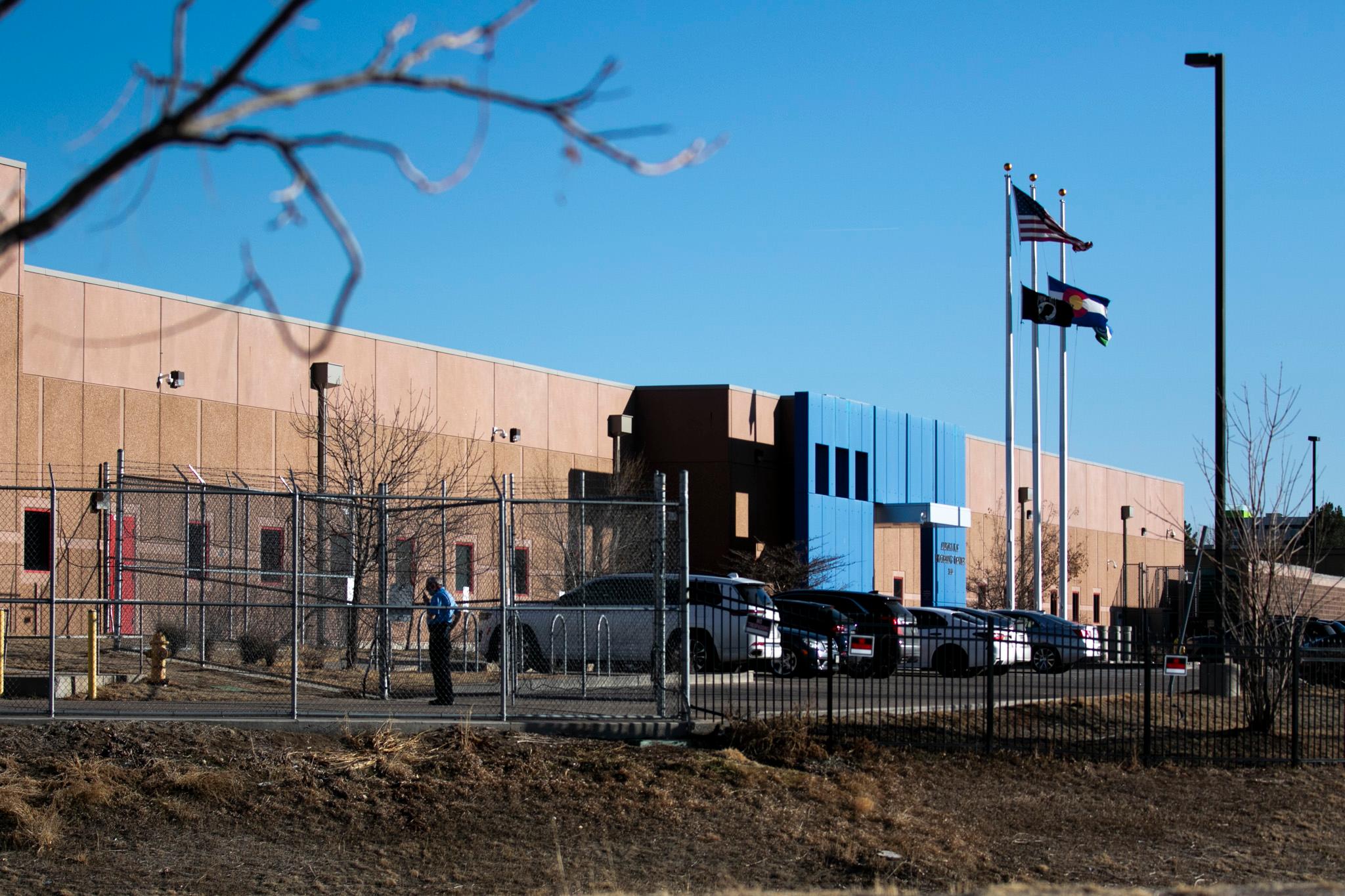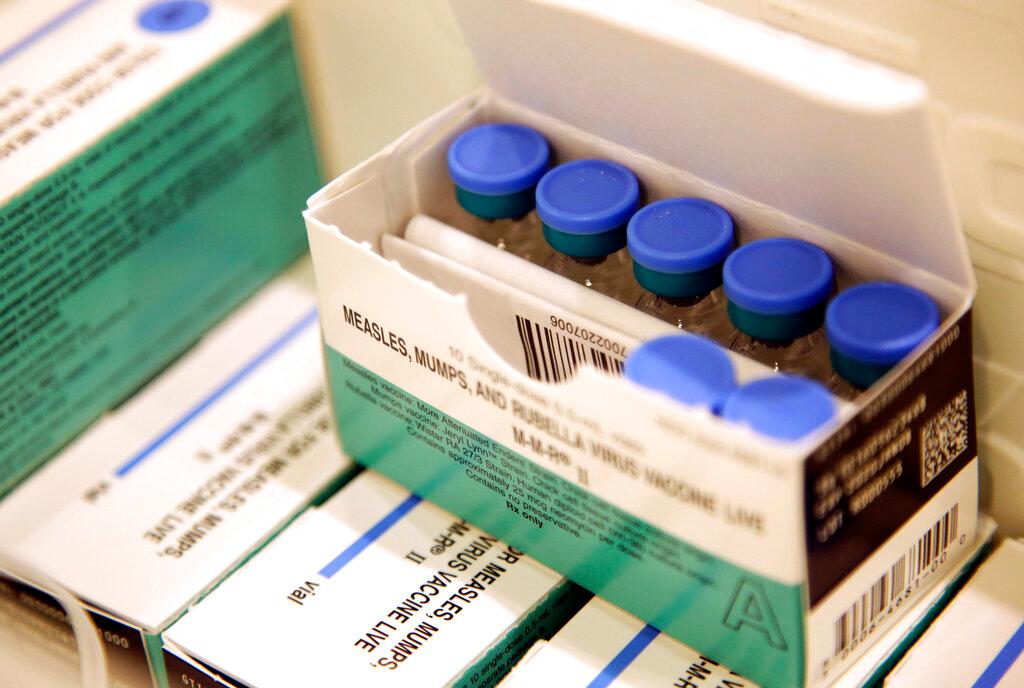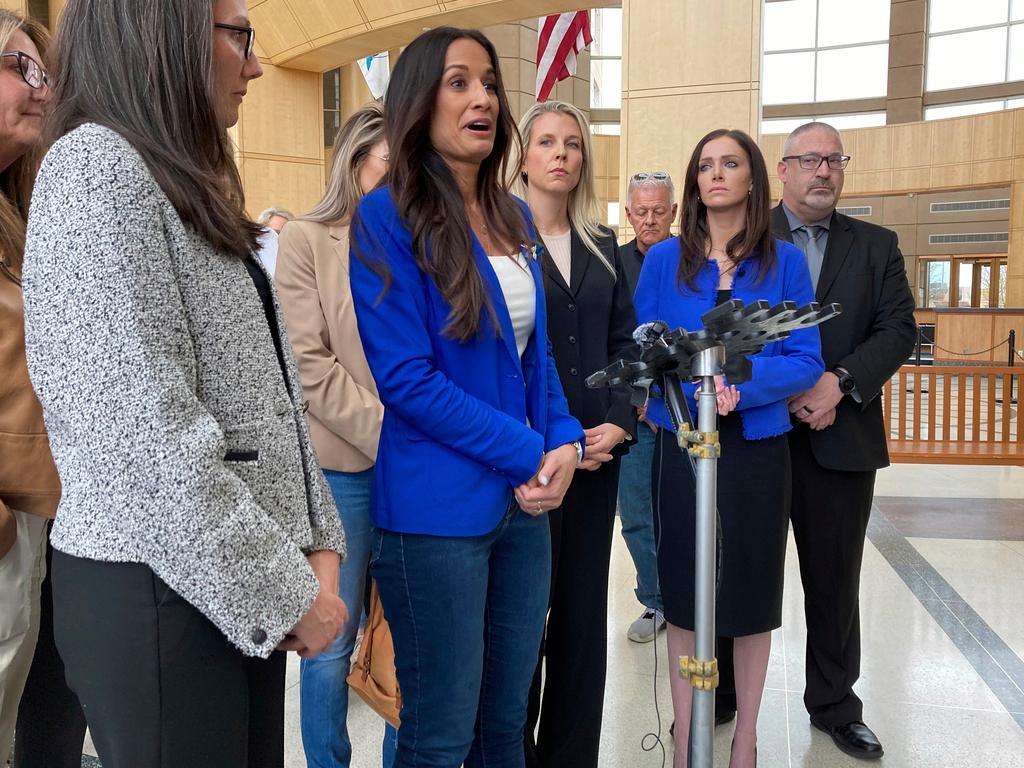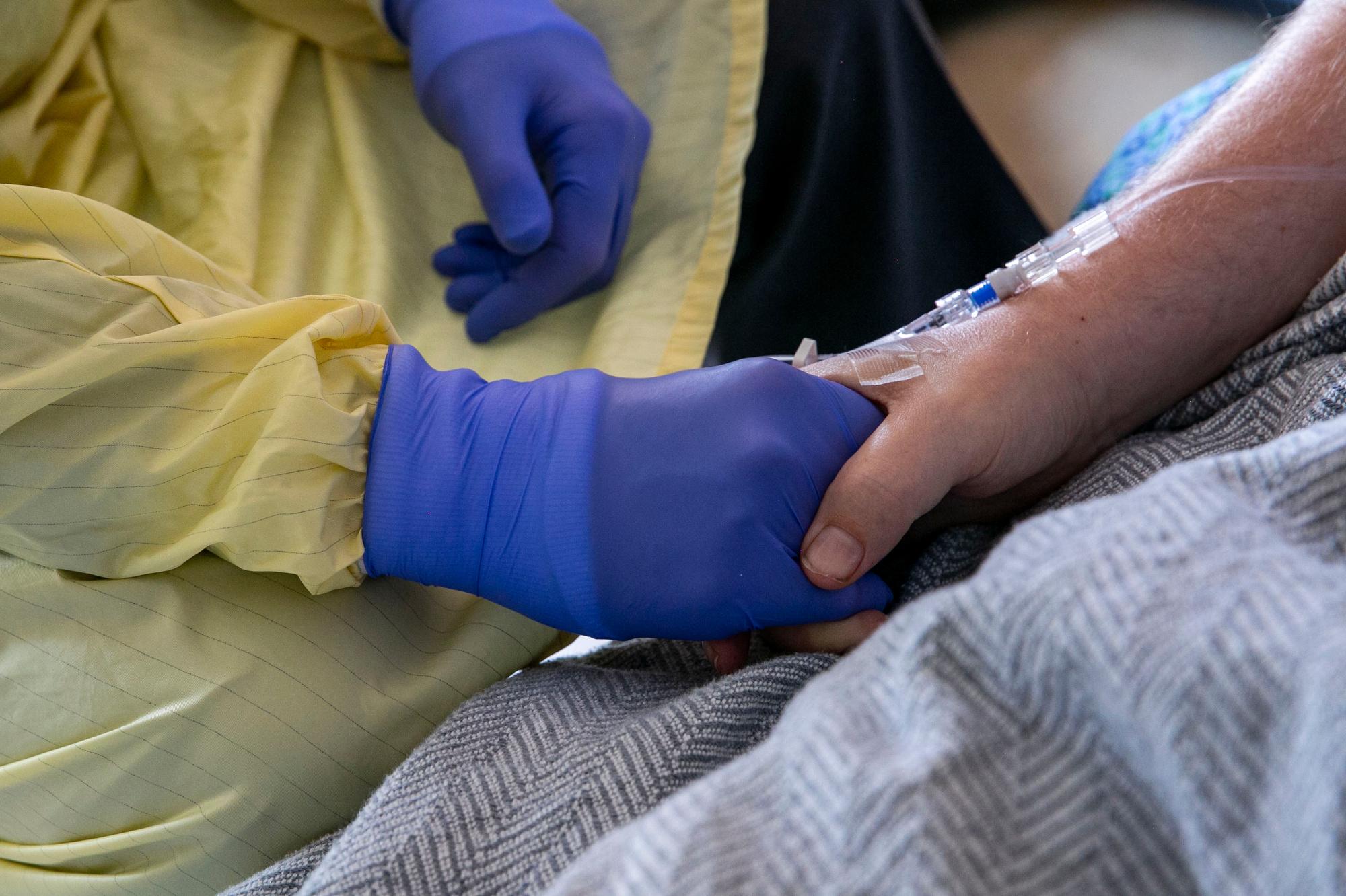
As Colorado pushes to meet President Joe Biden’s Fourth of July vaccination goal, the state began calling unvaccinated people directly this week hoping to set up appointments.
Also, the first person in Colorado to receive a double lung transplant due to COVID-19 returned home on Father’s Day to his four kids. And barriers remain to reaching Latino, Black and Indigenous Coloradans.
Here’s where things stand with COVID in Colorado this week.
The fourth million-dollar winner and five more scholarship recipients
Stephanie Sharp, a child psychologist who works in private practice and with Children's Hospital Colorado, was announced as the fourth and penultimate winner of Colorado’s million-dollar giveaways meant to promote vaccinations. Sharp's husband works as a nurse at the Aurora VA Community Living Center at Fitzsimons and they live in Douglas County.
She said she plans to donate a portion of her winnings to “worthy causes that promote love, compassion, tolerance and that simply perpetuate goodness.”
Among the college scholarship winners was the youngest recipient to date. The winners were:
- Clara Smith, 17, of Berthoud,
- Bay Morrish, 17, of Nederland,
- Liza C., 12, of Denver,
- Sula Schuyler, 13, of Denver, and
- Nathan Reseigh, 15, of Boulder.
As of June 24, here’s where things stand:
- People in Colorado who have been fully immunized: 2,895,281
- Total Colorado population: 5,773,714
- Percent of people immunized: 50%
Since last week, the state’s percentage of fully immunized Coloradans has crept up enough to be at about half of the state’s population. And about 55 percent of Coloradans have gotten at least one dose of the COVID vaccine as of June 24.
Since last week, no new counties have passed the 70 percent one-dose mark, according to the state’s COVID data, and 27 counties remain below 50 percent of people being fully vaccinated.
At about 41 percent, Mesa County’s fully vaccinated number continues to chug along. Mesa remains the largest county with the least number of fully vaccinated people.
Biden’s goal is 70 percent of adults by July 4, which Governor Polis says the state is on track to reach.
Quick resources on getting the COVID vaccine in Colorado:
- These six locations across Colorado don’t require vaccine appointments
- Yes, your employer needs to give you paid time off for the COVID vaccine
- No, you do not need to show an ID to get the COVID vaccine
- The facts about getting COVID after you’ve been vaccinated
- What to know about COVID vaccine side effects
Not vaccinated? Expect the state to call
State officials began calling some 500,000 unvaccinated Coloradans this week to provide them with more information about the COVID vaccine.
The state obtained the phone numbers through the Colorado Immunization Information System and other publicly available records.
“We have statutory limitations on how we can use this information, and we're only using it to reach out to people to make sure that they understand where they can get this vaccine and to answer any questions that they might have,” said Scott Bookman, Colorado’s COVID-19 incident commander with the state health department.
If you aren’t vaccinated, expect the call to come from “CO-VAX-CO,” or 268-2926. If you choose to get help from the agent calling about setting up a vaccine appointment, they will ask for some personal information. They will not, however, ask for any credit card or Social Security numbers or any bank account information. The calls are being made in English and Spanish.
Hospitalizations, Cases and the Delta variant:
About 279 patients are currently hospitalized across the state with confirmed cases of COVID-19.
That’s down from more than 300 last week and continues the falling trend since the week of May 8, when more than 670 people were hospitalized.
In Mesa County, among the places where providers are battling the more contagious Delta variant, the rate of fully immunized residents has only increased by about one percent since last week. That comes at a time when about 98 percent of Mesa County’s staffed ICU beds are full, according to the county’s data. Not all of those are COVID patients.
Across the state, the more contagious Delta variant that has become one of the biggest causes of concern for health experts now accounts for about 44 percent of the overall confirmed cases in Colorado.
COVID-19 took his lungs — but he survived
Bryan Raymond received Colorado’s first COVID-19 related lung transplant on March 6, a year and a day after the state recorded its first coronavirus case.
After months of preparing for the surgery and then recovering from it, Raymond, a father of four, made it home to Montana for Father’s Day.
This is an extreme treatment, and it’s not for everybody, which is why it took a year for the state to have its first candidate. Raymond’s surgeon, Dr. Robert Meguid of UCHealth, said Raymond fell into an “unfortunate sweet spot” that qualified him as the first in the state for the surgery: He was too sick to survive without new lungs but he was just strong enough for rigorous physical therapy to prepare him for the operation and recovery.
Meguid predicted he’ll be doing similar transplants for years, often on people who contracted COVID even years prior, as long-haulers face worsening lung damage.
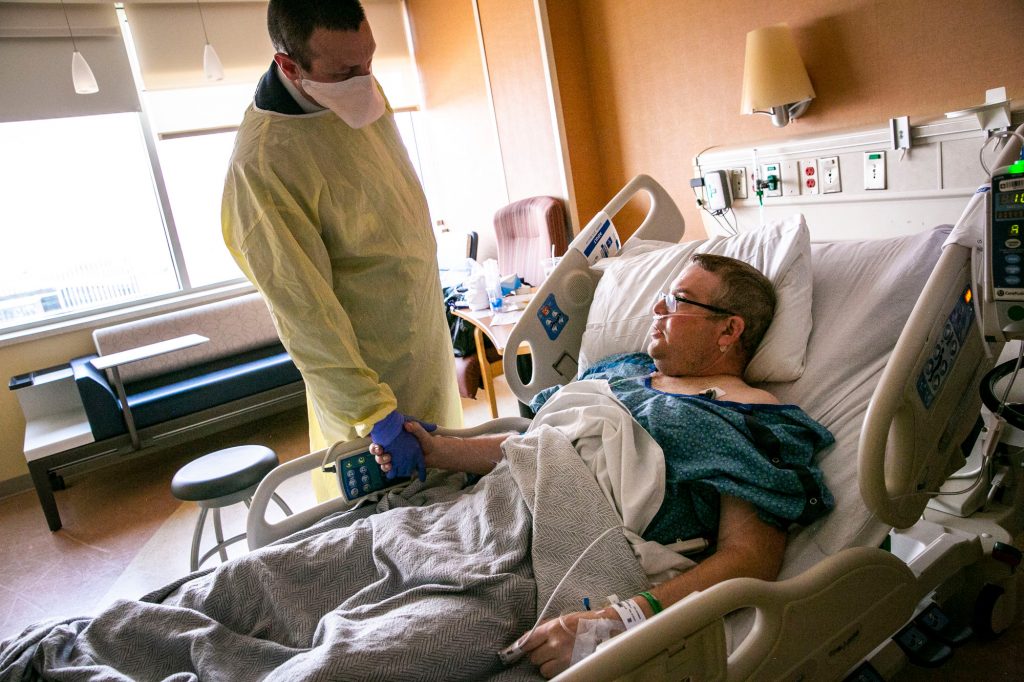
What can Colorado do to encourage Latinos and other marginalized groups to get vaccinated?
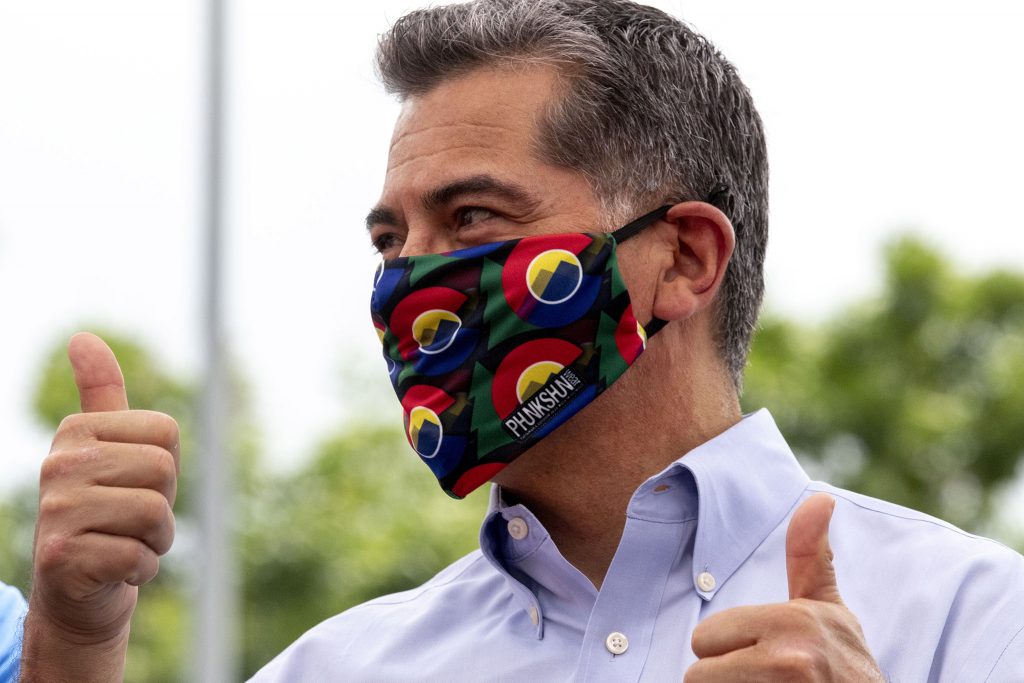
Though more Coloradans are getting vaccinated every day, there are still clear signs that the state is struggling to reach Black and Latino residents.
The state’s data shows that self-identified Hispanics (the term on the Census) make up less than 10 percent of the state’s vaccinated total, despite making up more than 22 percent of the population. Black Coloradans make up about four percent of the state population and represent under three percent of the vaccinated population.
These communities face many barriers, according to U.S. health secretary Xavier Becerra, who toured Denver and Aurora with the state’s leading Democrats.
“There are still too many families that have not been vaccinated, too many families in our Black community, and our Latino community, in our immigrant communities, who have not. And we need to get to them,” Becerra said.
Efforts like mobile vaccination clinics and meeting people where they are — like at a recent soccer match between Mexico and the U.S. — may prove key to reaching these populations and building trust.
Becerra said communities of color are not used to getting free medicine or treatment, or they see “some gimmick” involved in such offers. He added that “they're often the last to be served and the first to be exploited.”
